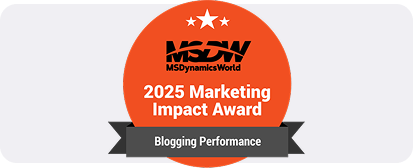CRM in Retail | Best CRM for sales in 2025
Canadian retailers in 2025 face several key challenges, including supply constraints due to low vacancy rates and rising rents, shifting consumer behaviors with a focus on budget-conscious and experiential shopping, and difficulties in technological integration for enhancing customer experience and operational efficiency.
Additionally, inventory management issues arise from fragmented systems and lack of real-time visibility, while high competition and the need for personalized experiences complicate customer loyalty efforts. In this case a retail CRM can rise to the occasion and resolve all the challenges of the retail market. In this article, we will talk about all the aspects of CRM in the retail market.
Before we move forward, it is important to note that the CRM in retail sector is different from CRM for eCommerce, however both are meant to manage customer relationships. CRM for e-Commerce focuses on digital customer interaction, personalized marketing, an automated engagement based on online customer behavior. On the other hand, CRM in the retail industry is designed for physical stores, prioritizing inventory management, loyalty programs, and in-store customer experiences.
Table of Content
What is CRM in retail?
Retail CRM is a system enabling retail companies to control their consumer relationships. It gathers and arranges consumer information—including purchase history, preferences, and comments—to let companies know their customers better and offer tailored experiences.
A retail CRM helps companies customize marketing campaigns, enhance customer service, and strengthen relationships with their clients. Increased consumer loyalty, better sales, and more streamlined operations could all follow from this. Essentially, it's a means for retail stores to monitor and improve their interactions with consumers.
The role of retail industry in the Canada market
The survey conducted by Retail Council of Canada, Jobbank, and Statcan highlights the contribution of the retail industry in Canada market and workforce.
- Canada's largest employer, the retail industry, provide jobs for almost 2 million Canadians making 12% of the labor.
- Roughly 10.6% of Ontario's employment or 842,500 individuals were employed in the retail sector in 2023.
- The industry added $40.1 billion to Ontario's Gross Domestic Product (GDP) in 2023, or almost 4.6% of the total GDP of the province.
- Supported by continuous e-commerce operations and population expansion in Ontario, employment is projected to witness modest increase over the 2024-2026 forecast period.
Importance of CRM for retailers
Retail CRM holds a great significance as it provides companies various advantages:
Improved Customer Understanding
Examining consumer data helps to produce tailored experiences and focused marketing, hence improving customer knowledge.
Enhanced Customer Service
Thorough consumer information allows fast problem solving and effective, tailored service.
Increased Customer Loyalty
Consistent tailored experiences and great service strengthen customer relationships.
Better Sales Management
CRM in retail business monitors sales activity, handle leads, and help sales strategy by means of tracking.
Efficient Marketing
Thorough data enables efficient marketing efforts aimed at the correct clients.
Streamlined Operations
Efficient operations result from task automation and information centralizing, which saves time and cuts mistakes.
All things considered, a CRM in retail improves customer knowledge, service, and sales expansion.
Top CRM list in Retail
Here is the list of top CRMs in Retail along with their benefits and limitations:
Dynamics 365 CRM

Known to improve customer satisfaction and execute targeted marketing campaigns.
Benefits:
Integration: Seamlessly integrate with other Microsoft products like Microsoft Outlook and Teams.
Customization: Highly customizable to fit several business needs.
Scalability: Suitable for large enterprises with complex requirements.
Cons:
Complexity: CRM implementation can be complex and requires ongoing training.
Cost: Can be expensive for small businesses.
HubSpot CRM

Known for its marketing automation capabilities.
Benefits:
User-Friendly: Easy to use with a clean interface.
Free Plan: Offers a free plan with essential features.
Integration: Integrates well with marketing tools.
Cons:
Cost: Advanced features can be expensive.
Email Limitations: Limited to one email per contact.
Salesforce CRM

Popular for its comprehensive features and scalability.
Benefits:
Customization: Extensive customization options.
Integration: Integrates with over 1,000 other platforms.
Reporting: Powerful reporting and analytics.
Cons:
Cost: More expensive than its competitors.
Complexity: Can be complicated to set up and maintain.
Zoho CRM

Great for inventory management and small businesses.
Benefits:
Affordable: Offers a free plan and affordable paid plans.
Automation: Includes automation features in all plans.
Integration: Integrates with various third-party apps.
Cons:
Customization: Limited custom fields in lower-tier plans.
AI Features: Advanced AI features only available in top tiers.
Agile CRM

Known for its all-in-one CRM with marketing automation.
Benefits:
Affordable: Budget-friendly for small businesses.
Automation: Strong marketing automation features
Multi-functionality: Includes sales, marketing, and service tools.
Cons:
Complexity: Can be tricky to set up initially.
Support: Customer service response time can be slow.
Pipedrive

Known for its streamlined sales pipeline management.
Benefits:
Sales-Focused: Designed specifically for sales team.
AI Assistance: Smart AI-powered sales automation.
Easy to Use: Intuitive interface with drag-and-drop functionality.
Cons:
Customization: Limited custom fields for data organization.
Pricing: No free plan, and advanced features require higher tiers.
Freshsales

Recognized for its AI-driven CRM with strong automation.
Benefits:
AI-Powered: Lead scoring and automation tools.
Built-in Phone: Includes call tracking and auto-dialers.
Affordable: Competitive CRM pricing compared to other.
Cons:
Reporting: No advanced reports on free plan.
Support: Customer support could be more responsive.
Zendesk

Famous for its customer service and support CRM.
Benefits:
Ticketing System: Powerful customer service ticketing platform.
Multi-Channel Support: Integrates chat, email, and phone.
Scalable: Suitable for businesses of all sizes.
Cons:
Cost: High pricing for advanced tiers.
Complexity: Can be overwhelming for beginners.
Key features of Retail CRM systems
Retail CRM systems include several tools meant to help companies run their operations and manage client relationships.
Here are some key features:
Customer Data Management
Gathers and keeps consumer data from many touchpoints including in-store transactions, website visits, and social media interactions, hence building thorough client profiles.
Sales and Inventory Forecasting
By examining past sales data, it forecasts future demand, hence enabling businesses to control inventory more efficiently and prevent overstocking or stockouts.
Marketing Automation
Ensures timely and relevant consumer engagement by automating tedious marketing chores like sending tailored emails, starting focused campaigns, and handling follow-ups.
Customer Service Management
Improving the whole consumer experience, it offers solutions for monitoring customer care contacts, handling support cases, and fast issue resolution.
Loyalty Program Management
Designing and running consumer loyalty programs, monitoring points and incentives to promote repeat business and boost client retention, Loyalty Program Management assists.
Sales Management
Enables companies to find possibilities and enhance sales tactics by tracking sales activity, managing prospects, and monitoring sales performance.
Analytics and Reporting
Provides thorough analytics and reporting tools to assess the success of sales and marketing initiatives, hence offering insights for data-driven decision-making.
These elements enable shops to know their consumers better, simplify processes, and finally promote sales increase.
Why is Dynamics 365 CRM solution the best CRM for retailers?
With its thorough features and advantages customized particularly for the retail sector, Microsoft Dynamics CRM is regarded as one of the top CRM systems for stores. Some important justifications are as follows:
Unifying Commerce Platform
Offers consistent shopping across mobile, web, and in-store channels.
Advanced Inventory Management
Provides quick merchandising and real-time inventory visibility.
Customer Insights and Engagement
Offers a 360-degree customer view and individualized experiences.
Also Read: Dynamics 365 Customer Insights Self Service
Integrated AI and Analytics
Empowers operational efficiency and data-driven decision-making.
Scalability and Flexibility
Modular design lets you reasonably customize and smoothly integrate with other Microsoft programs.
Employee Empowerment
Improves production with role-based access and complete tools.
Future-Proofing the Business
Dynamics CRM enables retailers to stay competitive and ready for future difficulties by remaining nimble and changing to market conditions.
All things considered, Microsoft Dynamics CRM helps stores to enhance data-driven decision-making, operational efficiency, and customer involvement.
Challenges of retailers in Canada
Retailers in Canada in 2025 will have to contend with many difficulties, including:
Supply Limitations
High building costs and a few new retail projects have resulted in low vacancies and increasing rents.
Changing Consumer Behavior
Shoppers are looking for value-oriented and experiential retail choices and are on a budget.
Technological Integration
Many stores find it difficult to include cutting-edge technology to improve operational effectiveness and consumer experience.
Inventory Control
Real-time visibility deficits and fragmented systems can cause stockouts or overstocking.
Customer Loyalty
High competition and conventional engagement strategies make it difficult to retain consumers.
Ways Dynamics CRM can Assist in Retail
Microsoft Dynamics CRM can be helpful for retail businesses in the following ways:
Unified Commerce Platform
Guarantees constant customer engagement by offering a smooth shopping experience across in-store, online, and on mobile channels.
Advanced Inventory Control
Real-time inventory visibility and control help to lower stockouts and overstocking.
Customer Insights and Engagement
Using AI-powered technologies to collect and examine consumer data, it offers tailored marketing and better customer retention.
Point of Sale (POS) Systems
Modern, role-tailored POS systems improve the in-store experience and assist offline use.
Employee Management
Helps staff members provide great service by means of scheduling, work management, and performance tracking.
Financial Management
Offers thorough knowledge and control over financial performance by integrating financial operations with retail activities.
Supply Chain Optimization
Data-driven insights and predictive analytics help to increase supply chain efficiency.
Also Read: Supply Chain Management SCM Software
Analytics and Reporting
Provides strong analytics and reporting capabilities that enable retailers to wisely decide and maximize operations.
Using Dynamics 365 CRM for Retail, Canadian retailers may overcome these obstacles and promote growth by means of enhanced efficiency, customer involvement, and operational excellence.
Difference between ERP and CRM
ERP system vs CRM serve different purposes which are the following:
ERP system vs CRM
ERP: Focuses on managing internal business processes like finance, inventory, supply chain, and operations. It integrates multiple departments for better efficiency.
CRM: Focuses on managing customer interactions, sales, and marketing to improve customer relationships and drive revenue.
In short, ERP is about streamlining your business operations, while CRM is about strengthening your customer connections.
Ready to Transform Your Retail Operations?
At Dynamics Square, we specialize in helping Canadian retailers unlock the full potential of Dynamics 365 CRM. Whether you're aiming to personalize customer journeys, streamline operations, or boost sales, our expert team is here to make your digital transformation seamless and impactful.
Let’s bring your retail vision to life with a faster, smarter, and future-ready solution and make your Dynamics 365 implementation a memorable experience.
Get in touch with our Dynamics 365 experts today and discover how we can tailor a CRM solution that fits your unique retail needs. If you need any help, please don't hesitate to contact us directly at +1 289 807 0740 or just send an email to info@dynamicssquare.ca.
People Also Ask:
What does CRM stand for in Retail?
CRM stands for Customer Relationship Management. It involves strategies and technologies used by retailers to manage customer interactions and data.
What are the 4 types of CRM?
1. Operational CRM: Focuses on automating customer-facing processes like sales and service.
2. Analytical CRM: Analyses customer data to improve decision-making.
3. Collaborative CRM: Enhances communication between different departments.
4. Strategic CRM: Focuses on long-term customer relationship management and loyalty.
What is an example of CRM?
An example of CRM is Microsoft Dynamics 365, which helps businesses manage customer interactions, track sales, and automate marketing campaigns to improve customer relationships and sales performance.
How to Improve CRM in Retail?
To improve CRM in retail:
Enhance Customer Understanding: Gather and analyze customer data to tailor personalized marketing campaigns.
Improve Customer Engagement: Use centralized customer information to engage customers through various channels.
Automate Processes: Implement automation for sales, marketing, and inventory management to increase efficiency.
What does a CRM do?
A CRM system helps businesses manage customer interactions, track sales, automate marketing, and provide insights into customer behaviour. It aims to improve customer service, retention, and sales growth.
What is the most commonly used CRM?
The most commonly used CRM is Microsoft Dynamics 365. It is widely recognized for its robust features and has been globally recognized as the top CRM by Gartner.
How does CRM for retail improve sales?
CRM for retail improves sales by:
Personalizing Customer Experiences: Tailoring marketing and sales efforts based on individual customer preferences and purchase history.
Optimizing Inventory Management: Ensuring the right products are available at the right time through accurate sales forecasting.
Enhancing Customer Engagement: Providing timely and relevant communication to customers, increasing loyalty and repeat purchases.
Streamlining Sales Processes: Automating tasks and workflows to improve efficiency and reduce the sales cycle.
These factors collectively help retailers boost sales and improve overall customer satisfaction.
.jpg)


